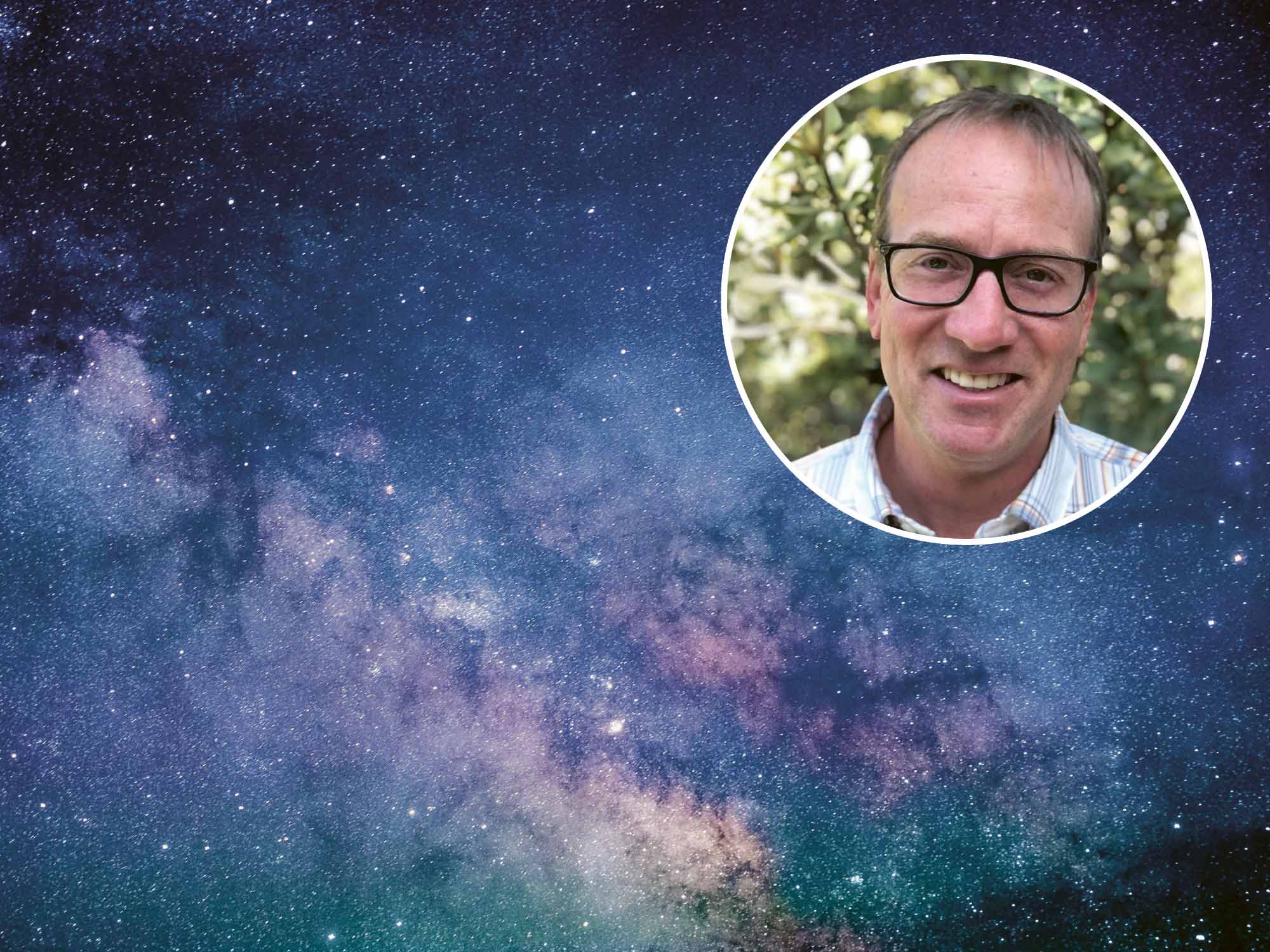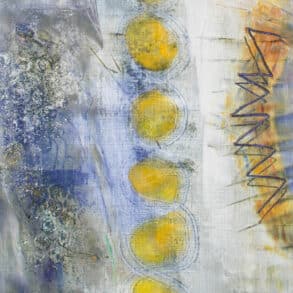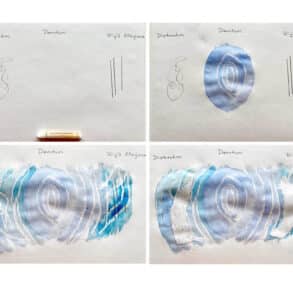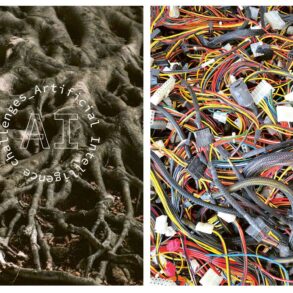Below are responses to questions that may naturally arise from the content of the author’s pervious essay, ‹Modern Cosmology is Untenable for a Free Thinker›. Most of these questions were posed by a colleague of the author who is a Christian and a PhD physicist but not well-versed in Anthroposophy.
Q: If cosmosophists learn about the cosmos through meditation, how do they verify and share with each other, or is that not possible?
A: A cosmosophist verifies their findings in the same way as a cosmologist. Just as cosmologists perform experiments based on observation and compare the results of their experiments with other cosmologists, cosmosophists do likewise although the scope of their experimentation is expanded to include their inner experience. Cosmosophists use their outer senses (e.g. their eyes, ears, etc.) to observe nature like a cosmologist, but they also use their inner sense of intuition (by this, I mean their capacity to know the truth) to ‹experiment› with the spirit. The distinguishing characteristic between a cosmologist and a cosmosophist is that the latter have additional experiences because they train themselves to open their inner organ of intuition. It is important to acknowledge that, in its essence, experimentation is nothing more than experience. Verification of all knowledge can only come to us through experience. To the degree that our experience satisfies our striving for knowledge is the degree to which verification occurs. If a cosmosophist is satisfied by mere fantasies and illusions, then they are poor in experience and offer little to those who strive for an encounter with the spiritual world that truly nourishes their spirit like food nourishes the body. Arbitrary and personal inner experiences do not reflect the spirit in such a way that these experiences will nourish those that earnestly seek for knowledge.
Regarding sharing their insights, again there is no difference between how a cosmologist and a cosmosophist share their findings. Cosmosophists use words and concepts to share what they have learned with each other and the world. The point is that they will rightly understand each other’s concepts and words only if they have relatable experiences. This is the same as with cosmologists.
Q: If someone accepts the conclusion of the above essay regarding the laws of nature but does not considers themselves to be a cosmosophist and, perhaps, doubts their ability to make any progress with the question «from whence did to all come» through their own inner experience, what should they do?
A: They should continue to walk the path they are on. What alternative is there? Out of our own background, we connect with other cosmosophists in the world-although we may not use the term cosmosophist to describe them-to determine which of these cosmosophists offers us spiritually satisfying answers to our questions about our origin. For most Christians, the authors of the Bible provide satisfying answers to life’s questions. For others, the 20th century figure of Sri Aurobindo offers them a way to grasp world evolution in a deeply spiritual way. For Anthroposophists, Rudolf Steiner’s teachings act as a guide for becoming a cosmosophist oneself, so as to come to an understanding about life’s riddles.
Q: How does one cosmosophist determine if what another cosmosophist experiences is true?
A: This question is closely related to the first. It comes down to verification through experience. However, I will add that it is not belief, but goodwill that is necessary for cosmosophists to show toward each other’s spiritual research. Goodwill provides the right mood where each can test the veracity of the other’s spiritual research (e.g. experience or experiments) if sufficient motivation exists.
Q: [This question assumes an interest in and a certain exposure to quantum mechanics.] Experiments have been conducted on Bell States that rule out hidden variables affecting entangled light. Would you say the light evolution you describe is easily outside what these experiments rule out? Or maybe entanglement is actually one of many ways that light ages and evolves in the physical realm. Maybe entanglement is related to the way by which ‹spiritual forces› change the laws of nature.
A: This question brings the specific laws of quantum mechanics into the discussion which may be very important for those who see a way to the spiritual through the riddles of quantum physics. I will say first that, yes, the essay above describes thing that are «easily outside what [all quantum mechanical] experiments demonstrate.» This essay demands we go beyond the paradigm of quantum mechanics altogether. Physicists have proven that entanglement is a fact, but the key observation here is that this fact of quantum physics relates to physical phenomena as these phenomena appear in our current epoch and not ‹spirit itself›. (I will try and make what I mean by ‹spirit itself› clearer below.) Entanglement as observed in nature may at first appear to challenge the clear duality between thinking subjects and everyday objects in the physical world. It may appear that the connection between mind (spirit) and body is encountered in quantum physics, but this is not so. How can I say this so definitively?
All that is implied by the Heisenberg’s uncertainty principle whereby an experimenter ‹collapses the wave function› merely relates the action of the subject directly to the object and not the subject’s inner experience (thinking, for example) directly to the object. If we move our hand back and forth over one slit in the famous double-slit experiment to see entanglement manifested as wave-particle duality, we are seeing the results of human thinking which manifest as an act of will to move our hand over the slit, but not thinking as such. (Acts of will are no different than the movements of machines. They occur in the outer physical world. While inner experience is behind the movement of a hand, the actual movement of the hand itself is a mechanical process.) Thinking as such occurs on a higher order than the physical order. Thinking occurs in ‹spirit itself›. This becomes obvious when we overcome intellectual materialism. If one does not agree with this conclusion about thinking and concludes, for example, that the brain, ultimately, secretes thoughts like the liver bile, then one is an intellectual materialist. However, if one is an intellectual materialist, then one will be caught in the untenable paradox discussed in the above essay. It is an indefensible position.
To overcome this paradox means to accept the conclusions of this essay and to acknowledge that human consciousness and thinking itself are not spared by the evolving spirit. The whole universe, which includes us, evolves according to the laws of the spirit. The quantum physicist cannot use quantum physics to study their own thinking. If one really grasps the content of the previous sentence, it is clear that the fundamental approach of quantum physics and natural science, in general, collapses on itself when the deeper questions of life are raised.
So the situation may seem hopeless for anyone striving for knowledge, because our faculty of thinking itself changes over time. We seem to have abandoned the paradox of intellectual materialism only to run into the possibility that all questions about our origins may be unanswerable. Does it even make sense to ask how can we use present day consciousness and thinking to grasp past consciousness and thinking? Yes, there is a solution to what appears to be this impossibly bewildering state of affairs for those that desire to know something about their origins: we must meet the ‹spiritual forces› as the question above says on their own terms within the spiritual world to know how the physical world evolves. We must develop intuition to the point where we no longer are bound by space and time and the laws of physics. We must enter the source of these laws. We must enter the spiritual world. There are many cosmosophists throughout history that describe the path to do just this. Rudolf Steiner is one such person and Anthroposophy is one such path that shows how to develop intuition to the point where we leave our physical body and encounter the spiritual world consciously.
I fully recognize that this image of Anthroposophy conjures for many a netherworld which is neither a proper religion, science, nor philosophy, but, as I keep emphasizing, if we are truly motivated to grasp the whole truth and are not satisfied with half measures, half-truths, and the intellectual game playing of cosmologists that so captures the imagination of the public, then we must «break the fourth wall» that separates religion, science, and philosophy to reach the concrete spiritual world.










as regards the article by Mathew Kenyon, I have waited 77 years to finally see/read a wonderful rebuttal as well as an alternative to humanities total disconnection from anything spiritual ..the rampant
destruction of humanities spiritual anchors (social religious scientific) by absolute materialist thinking has relegated humanity to absolute nothingness within this macro/micro spectography of bits and black holes. Until we rediscover our spiritual dimension our course of destruction is becoming so blatantly visible that from microbiologists to cosmologists and all human inquires between are overwhelmed and alarmed at our rapid decline below the beasts that we are supposedly descended from. Magnificent expose ! Dankeschon!